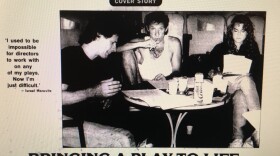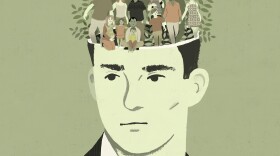
Rhaina Cohen
Rhaina Cohen is an associate producer for the social science show Hidden Brain. She's especially proud of episodes she produced on why sexual assault allegations are now being taken seriously, on obstacles to friendship that men face and why we rehash difficult memories.
She got her start in public radio as an intern for Planet Money. Before entering the audio world, Cohen was part of the production team for ABC News' This Week with George Stephanopoulos. She also worked as a research assistant for Rebecca Traister on the New York Timesbestselling book All The Single Ladies: Unmarried Women and the Rise of an Independent Nation,and for Peter Slevin on the biography Michelle Obama: A Life.
As a Marshall Scholar, Cohen received a master's in comparative social policy from Oxford (and while there, competed in a dance style that hasn't yet gained ground in the United States: acrobatic rock'n'roll). She holds a bachelor's degree in American studies from Northwestern University. In college and graduate school she researched family policies, traveling to Denmark, Iceland and a U.S. military base. As a 2018 , she studied journalism ethics in Germany and Poland.
-
If you've ever flown in economy class on a plane, you probably had to walk through the first class cabin to get to your seat. Maybe you noticed the extra leg room. The freshly-poured champagne. Maybe you were annoyed, or envious. Social psychologist Keith Payne says we tend to compare ourselves with those who have more than us, but rarely with those who have less. This week, we explore the psychology of income inequality, and how perceptions of our own wealth shape our lives.
-
This week we focus on the behavior of the youngest members of the human race. We try to translate the mysterious language of babies. And we ask, when should we step back and just let our children be? For more information about the research in this episode, visit https://n.pr/2TuxEz3.
-
Gender is one of the first things we notice about the people around us. But where do our ideas about gender come from? Can gender differences be explained by genes and chromosomes, or are they the result of upbringing, culture and the environment? In this encore episode from October 2017, we delve into debates over nature vs. nurture, and meet the first person in the United States to officially reject the labels of both male and female, and be recognized as "non-binary."
-
"Be the change you wish to see in the world." It's a popular quote that's made its way onto coffee mugs and bumper stickers — but it's not the easiest principle to live. On this week's Hidden Brain, we meet Royce and Jessica James, a couple who decided to raise their daughter in a gender-neutral way. It was far harder than they ever could have imagined. For further reading on children and gender norms, visit us at https://n.pr/2AmmiW1.
-
Nearly a quarter century ago, a group of women accused a prominent playwright of sexual misconduct. For the most part, the allegations went nowhere. In 2017, in the midst of the #MeToo movement, more women came forward to accuse the same playwright of misconduct. This time, everyone listened. On this episode — originally broadcast in February 2018 — we explore the story through the lens of social science research and ask, "Why Now?" What has changed in our minds and in our culture so that allegations of sexual harassment and assault are being taken more seriously than they were in the past? A note: This story includes descriptions of sexual harassment and assault. It may not be suitable for all listeners.
-
Boys get the message quickly: a man is supposed to be strong and independent. That message, researchers say, has widespread consequences for men's social lives and physical health.
-
Violent crimes committed by Muslims are much more likely to be reported as "terrorism." And that has disturbing consequences for the way Muslims are perceived.
-
Decades ago, a group of women accused a prominent playwright of sexual misconduct. For the most part, the complaints went nowhere. In 2017, more women came forward. This time, people listened.
-
Many parents think they can shape their child into a particular kind of adult. Psychologist Alison Gopnik says the science suggests otherwise.
-
A culture of racism can infect us all. On this week's radio show, we discuss the implicit biases we carry that have been forged by the society around us.










